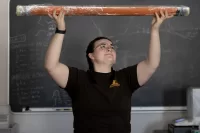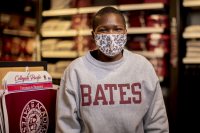
When he was still in high school, Misa Beltran-Guzman, director of first-generation programs at Bates, had a preview of many of the culture shocks experienced by first-gen college students.
A first-gen American from a working class neighborhood in Toledo, Ohio, Beltran-Guzman attended a private college preparatory high school. As a low-income student of color in a predominantly white and affluent setting, it was an adjustment, even with the support of his parents, immigrants from Mexico who had always impressed upon him the importance of education.
“I felt very out of place the first couple years of high school,” Beltran-Guzman says. “Sometimes when I think back, I felt like a ghost when I navigated that first year of high school.”
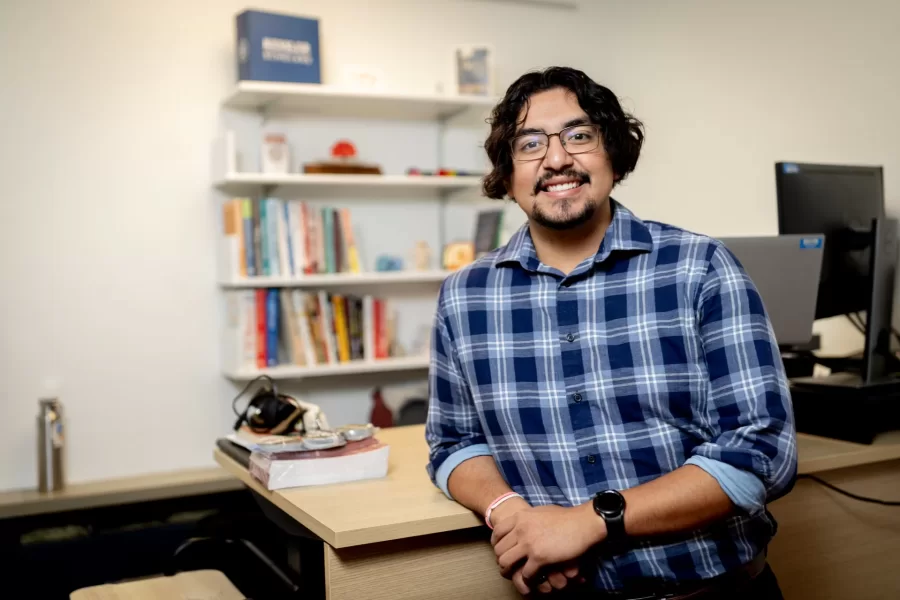
School was no longer just about making good grades, he realized. His peers were already preparing for college applications by joining extracurricular activities and taking on extra scholastic work. It felt to Beltran-Guzman like everyone else knew how to navigate the world beyond high school already.
With time and support from his teachers, Beltran-Guzman developed confidence. He became more involved, excelled academically, and went on to attend Colby as a first-gen college student, double majoring in Latin American studies and education. As a sophomore, he became a fellow in a student success program at Colby aimed at first-gen and low income students. That positive experience, along with lessons learned from the challenges of high school, motivated his career choice.
“I knew I wanted to do something to increase access to the type of schooling I was getting,” Beltran-Guzman says.
As the new director of the multi-pronged first-gen programs at Bates — he started in March — he’s doing just that, and at a time when the college is deepening its efforts to reach more promising first-generation students.
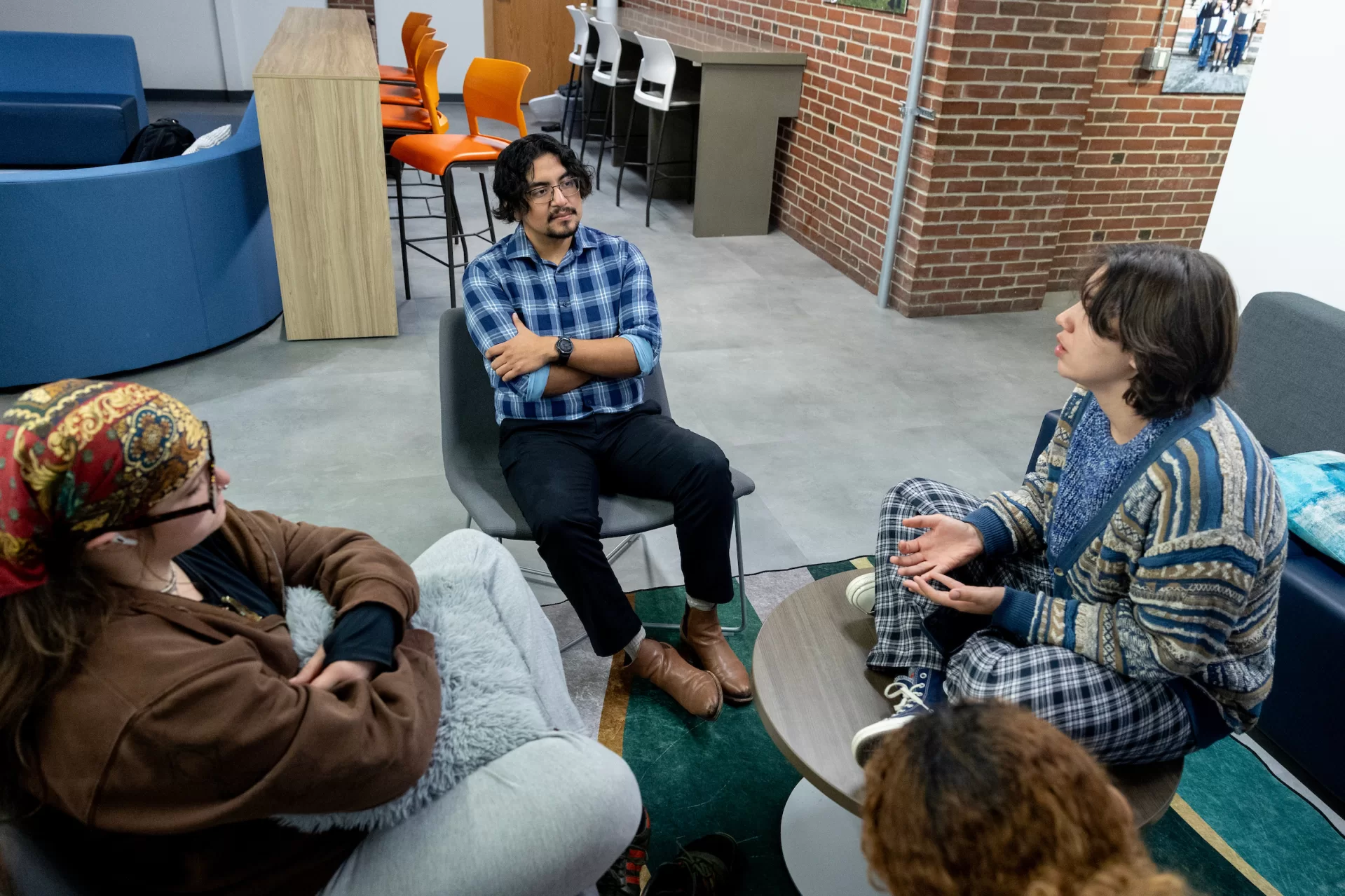
Bates recently partnered with QuestBridge, a national program that matches high achieving, low income high school students, who are frequently first-gen, with full scholarships to elite universities and colleges and mentors them throughout their college careers. When the first class of QuestBridge students arrives at Bates in the fall of 2026, Beltran-Guzman, himself a QuestBridge alumnus, will be there to help with their transition to college life
In his role at Bates, he also oversees two first-gen mentorship programs, Kessler Scholars and Bobcat First, which currently have 90 and 92 student participants, respectively, across all four classes. Bates joined the Kessler Scholars initiative in 2022 when the Bloomberg Philanthropies and the Judy and Fred Wilpon Family Foundation awarded the college a $1 million, five-year grant to participate in the collaborative. Earlier this year, the foundation extended its grant to Bates to continue through the 2030-2031 academic year with an additional $1.1 million.
Over the past decade, more and more institutions of higher education have established programs for first-gen students, Beltran-Guzman explains, but Bates was leading the curve when it established the Bobcat First Program in 2016. First-gen students at Bates are engaged by Bobcat First as soon as they are admitted to the college with a warm welcome, informative communications, and virtual webinars designed to help with the college transition.
“We want you to be able to be your full self here with what you would consider your flaws and areas for growth, and what you would consider your assets and your strengths and your superpowers.”
Misa Beltran-Guzman, director of first-generation student programs
Bobcat First provides key support for first-gen students across all years on all fronts, from academic success workshops to community building events. First-gen programs are key in ensuring that students whose parents or guardians have not obtained a bachelor’s degree are able to feel at home at Bates, complete their degrees, and go on to fulfilling careers.
First-gen programs also remove barriers, such as unfamiliar terminology or confusing processes, which can create major hurdles for students and families trying to navigate college. Demystifying college-specific terms and providing accessible guidance not only helps first-gen students excel, but also makes a college experience more inclusive for all, Beltran-Guzman explains.
“Creating a foundation for first-gen students to succeed will benefit everyone who attends the college,” Beltran-Guzman says. “When we make explicit things like hidden curriculum and unspoken language, it just makes a better experience for everyone.”
Beltran-Guzman is using his expertise to help students fully embrace their time in college — and prepare for life after Bates — through identifying their motivations and passions.
“The ability to know your story, know your ‘why,’ and then communicate that to other people is tremendously powerful, impactful, influential for you to get where you feel you need to go,” Beltran-Guzman says.
At the center of Beltran-Guzman’s work is his deep love for people and helping them to approach one another without preconceived notions.
“You don’t have to be perfect, and you don’t have to be only one dimension of yourself that you think is presentable,” Beltran-Guzman says. “We want you to be able to be your full self here with what you would consider your flaws and areas for growth, and what you would consider your assets and your strengths and your superpowers.”
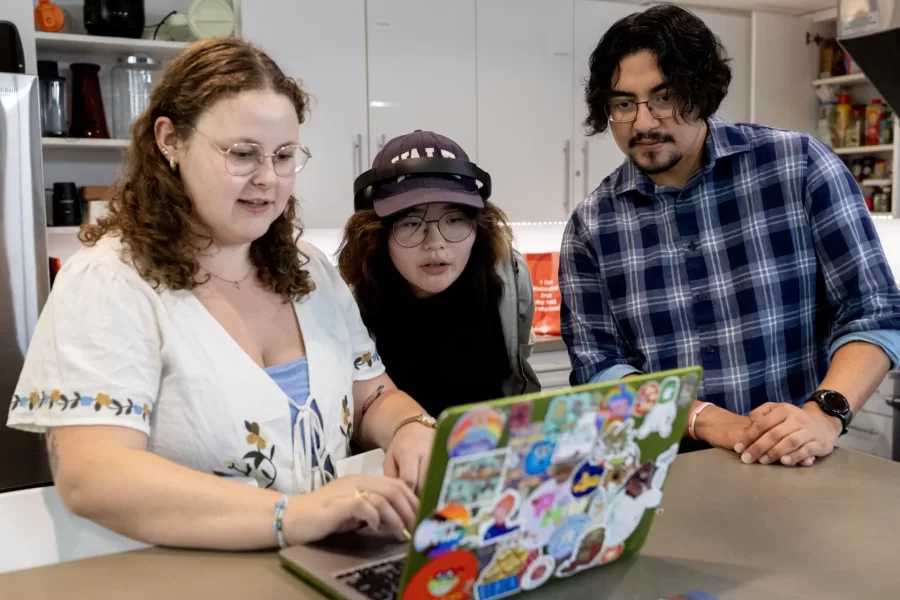
One of Beltran-Guzman’s main goals is to continue strengthening a first-gen niche within Bates’ already-existing strong community.
“I’ve been on a lot of college campuses, but very few have had the salient community and shared sense of culture that I think Bates has,” Beltran-Guzman says. “Even just walking around campus, if you look lost, people will stop and help you out. People help each other out.”
Beltran-Guzman hosts weekly First-Generation Snacking Chats, which are popular with students, and co-leads monthly First-Gen Chats that invite all first-gen campus community members to gather for conversation with Sarah Lynch, an assistant professor of classical and medieval studies who was a first-gen college student herself and launched the chat series last semester.
Beltran-Guzman’s personal experience informs much of his work. In college, he was eager to support his peers as a fellow with Colby’s then newly established first-gen, low income student support program.
“I felt able to turn around and help other first-year, first-gen students in navigating their own experience because I was familiar with the culture shock,” Beltran-Guzman says. After graduating in 2022, he stayed at Colby as the DEI co-curricular programs coordinator, then as the assistant director of DEI within the Pugh Center, which hosts Colby’s multicultural and first-gen student programming.
Kimberly Walton-Trajkovski, the associate dean and director of the Pugh Center, met Beltran-Guzman when he was a senior.
“As a student within the program, he knew at the time just what students needed and the resources that would be beneficial, and he did not forget that as he transitioned into the professional role,” Walton-Trajkovski says.
Beltran-Guzman embodies what it means to support a first-gen community, she explains.
“He lives the mission every day, whether he’s on the clock or not on the clock,” Walton-Trajkovski says.
And he remains in learning mode. This summer, Bates joined the FirstGen Forward Network, a community of institutions and professionals working with first-gen students around the country. While he’ll be proud to share how things work at Bates, he’s also looking forward to the two-way aspect of the information exchange
“There’s value in seeing what’s working in other contexts and learning from them,” Beltran-Guzman says.
He’s looking forward to that full circle moment when he will welcome, and work with, Bates’ first cohort of QuestBridge Scholars in the Class of 2030 next fall.
“I feel really proud of my first-gen identity, and I sense that Bates is a place where students can be proud of being first-gen,” Beltran-Guzman says. “And that’s really important to me.”


